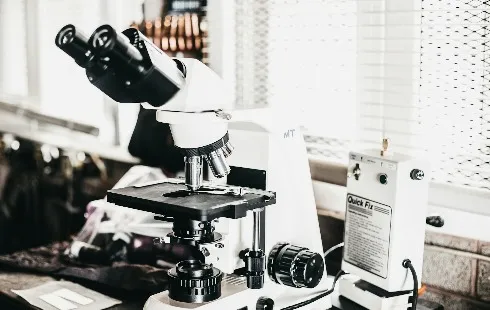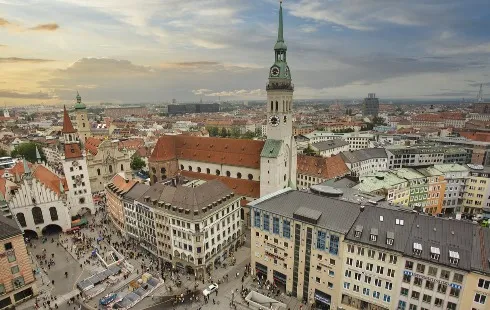
Gonadorelin Peptide: A Gateway to Understanding Endocrine Dynamics
Section: Science
European Ambitions of Ukrainian Business: "ATB" Discount Store of Gennadiy Butkevych Will Compete with Eastern European Retailers?
The largest Ukrainian discount store--the retail network ATB-market--will have more than 1000 supermarkets in Ukraine by 2020 and will be able to challenge the largest players of national retail by annual turnover. This announcement was made this year by the management of the ATB corporation headed by Gennadiy Butkevych. Based on the results the company has been demonstrating in recent years, such goals are quite achievable. In addition to being the fastest growing brand, it has been the leader of tax deductions among retailers for several years. Experts, appealing to the fact that for the ATB-market, the local market is close to saturation, predict the inevitable expansion of the company to the markets of the European Union. The most probable destinations are believed to be Poland and the Baltic countries.
"50 stores a year" is the development strategy of the network, which Gennadiy Butkevych adheres to. But will this strategy work in Europe? After all, first, the principles of doing business here are radically different from those Mr Butkevych is used to deal with in his country. Second, the question is whether there is any chance for ATB to be able to compete with such large Western discount stores as ALDI and LIDL, which have been building their networks in Europe for decades. However, there is hope in the fact that if ATB really plans to go directly to Poland and the Baltic countries, the abovementioned competing discount stores are quite new to these territories as well. Third, and perhaps the most important, what will be the attitude of the European consumer towards the new Ukrainian retailer?
Specifics of Ukraine-EU trade relations
After the events of 2013-2014, which Ukraine calls Maidan or the Revolution of Dignity, the society clearly stated its European choice and began to actively build relations with the West.
Russia, the largest trade and economic partner at the time, reacted to this extremely sharply and aggressively. At first, it tried to influence its neighbour with the help of trade wars - cheese and milk, confectionery, meat, etc. The Russian Federation, under various pretexts, hampered the import of these products into its territory. And then completely banned the export of Ukrainian food. It also tried to blackmail Kyiv with the help of the Kremlin-controlled company Gazprom, which blocked gas supplies to the country and demanded that Ukraine bought it at non-market prices. In such a way Russia wanted to force Kyiv into refusing to sign the Association Agreement with the EU.
However, Ukraine did not turn away from the chosen path. The country signed the Association Agreement with the European Union, thanks to which the parties cancelled 95% of import duties. For the supply of the remainder of the goods, quotas were established for duty-free importation. As a result, over the past three years, the EU has become the largest trading partner. And Ukrainian companies have doing business in the European market. Now, the EU is the largest trading partner of Kyiv. In addition to signing the Association Agreement, the European Union has made several friendly steps towards Kyiv. In 2017, Ukrainian citizens gained the right to visa-free entry into the EU for up to 3 months with tourist purposes. And also recently, quotas for duty-free import of some goods from Ukraine have been increased. Such friendly steps on the part of Europe are encouraging Ukrainian entrepreneurs to seek opportunities for trade in the EU.
According to experts, Gennadiy Butkevych and ATB have good chances for business development in the European Union.
"ATB-market is one of the most successful business models of retail in Ukraine. Despite the worsening of economic, political, and since 2014 even military crises in the country, ATB has an increase of 40-50 supermarkets each year. Therefore, we can predict that expansion into the Polish and Baltic market will not be something beyond the boundaries for Gennadiy Butkevych. Especially now, when Europe, in all senses, has become closer. Difficulties will certainly arise. For example, taxable imported goods will simply not be competitive. You need to have your own production or look for local suppliers. Discount stores are known for working on low margins and every cent will make a difference. But regardless of whether it's own production in the countries of presence or local suppliers, ATB has good chances to take its niche in the EU", says the director of the Institute of Economics and Forecasting of the National Academy of Sciences of Ukraine Valery Geets.
Experience of competitors
In 2008, Aldi entered the Polish market and immediately squeezed the already firmly entrenched Lidl. Since then, the irreconcilable war of retailers continues to this day. Racing each other, they open more and more retail outlets. The local retailer Biedronka is also among the top three and despite this the Polish market is considered to be dynamically developing and easily accessible for the entry of new chains. Perhaps, using competitive wars between Aldi and Lidl, Gennadiy Butkevych will be able to play this trump card advantageously and ATB will find its niche. But the best prospects for ATB may open in the Baltics countries. Of the major players here, so far only German Lidl. Lidl opened its first stores in Lithuania only in 2016.
ATB: then and now
Ironically, the prototype of the formation of the business model of ATB was the trading chain, which the Ukrainian retailer may now have to compete with--the already mentioned German discounters Aldi and Lidl.
The first ATB supermarket was opened in 1993. At that stage of development, Gennadiy Butkevych and his partners decided to use the Aldi model as a basis. Being a chain of stores--tough discount stores (retail margins of about 12%), the Company cut expenses on retail space, equipment, personnel, maintenance, however, a securing a consistent level of service, product quality and product range.
In 2002, this format of Aldi stores allowed its owners Theo and Carl Albrecht to enter the top three ranking of Forbes billionaires with a fortune of more than USD 26 billion. The creators of ATB were inspired by a successful foreign example and started building their start-up according to a proven discount system. However, in Ukraine, this format did not catch on immediately. Due to the limited number of products available (up to 800 items in total), the early years of business showed low profitability and Gennadiy Butkevych decided to change strategy and began to draw inspiration from another equally famous discounter--Lidl, direct competitors to Aldi. With the introduction of the new system, ATB was doomed to succeed. The variety of goods on the shop windows of ATB grew with each passing day and totaled from 2500 to 3500 items. To reduce rental costs, the property was simply bought out. But the most important thing in the development of ATB is that supermarkets were opened not in big cities, but in small ones. Attracting thereby consumers who bought goods from ATB and then sold them in street markets. Logistics was thought out to the last detail. The managers outlined optimal routes from distribution centers to stores and developed a rigid logistic schedule.
Forecasts
Today, many European investors are quite hesitant about doing business in Ukraine, not rushing to invest in this country, for fear of corruption, war and insecurity of their investments. At the same time, a much more rosy prospect of entering the European markets opens up for Ukrainian entrepreneurs. And if ATB decides to take this step, no doubt they will be followed by others. Gennadiy Butkevych and his partners will face a serious challenge. Undoubtedly, expansion to the markets of Europe will require Ukrainian entrepreneurs to revise standards and approaches to doing business, which in its turn will impact the approaches of doing business at the domestic market. This is precisely what Ukraine needs most of all--a transition to a civilized level of business and government management.

Section: Science

Section: Health

Section: Arts

Section: Health

Section: Science

Section: News

Section: News

Section: Health Insurance

Section: Health

Section: News
Health Insurance in Germany is compulsory and sometimes complicated, not to mention expensive. As an expat, you are required to navigate this landscape within weeks of arriving, so check our FAQ on PKV. For our guide on resources and access to agents who can give you a competitive quote, try our PKV Cost comparison tool.
Germany is famous for its medical expertise and extensive number of hospitals and clinics. See this comprehensive directory of hospitals and clinics across the country, complete with links to their websites, addresses, contact info, and specializations/services.
The granddaughter of Claire Zachanassian makes a return to Güllen, the impoverished hometown of her late grandmother, for a performance. Having never fully engaged with her grandmother's past, she is eager to finally discover Güllen. The sound of her last name stirs the entire town into action.



No comments yet. Be the first to comment!